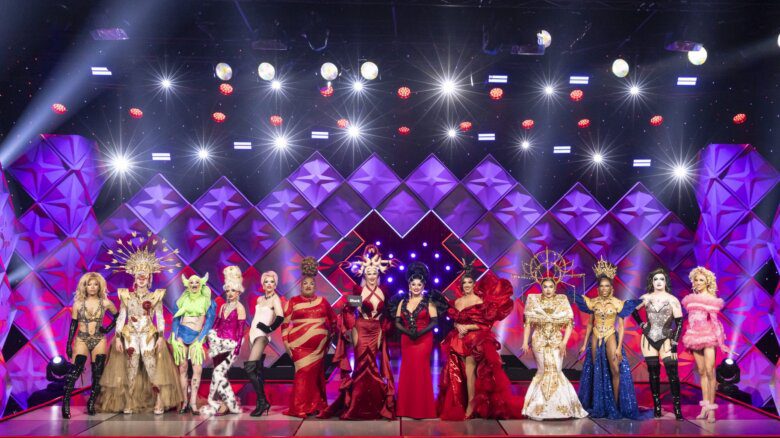A gorgeous, double-bill extravaganza is hitting the stage with more nudity than the Toronto theatre world has seen in quite a while.
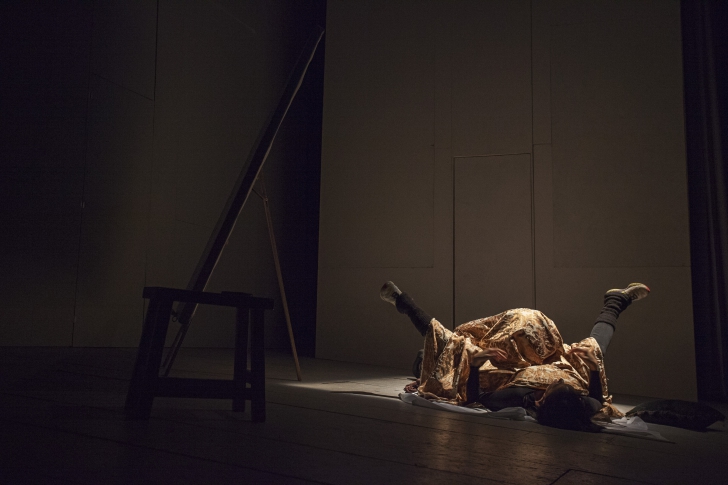
“There is more [nudity] than I’ve seen on Toronto stages in a very long time,” says Jordan Tannahill, playwright of Botticelli in the Fire and Sunday in Sodom.
Simply put, expect a lot of skin, salacious dialogue and cell phones — divided by an intermission. Yup, Tannahill’s re-telling of two “momentous events,” according to the Canadian Stage press release, drags the mythical and biblical worlds into the modern age with the use of dick pics, texting and contemporary language. While there’s a time and a place for beautiful plays based on ancient texts, this isn’t one of those times.
“Both plays explore who writes history, in a sense that one is a mythic tale and one’s a history tale, that are being reclaimed by these characters who have been silenced,” Tannahill says. “In the case of Botticelli, historians believe he burned a number of his paintings on the Bonfire of Vanities because he had a late life conversion, and this play posits that like many queers through history, he had to make a deal with the devil to save his ass from the fire and offer his paintings instead. That piece is a queering of a specific chapter in history.
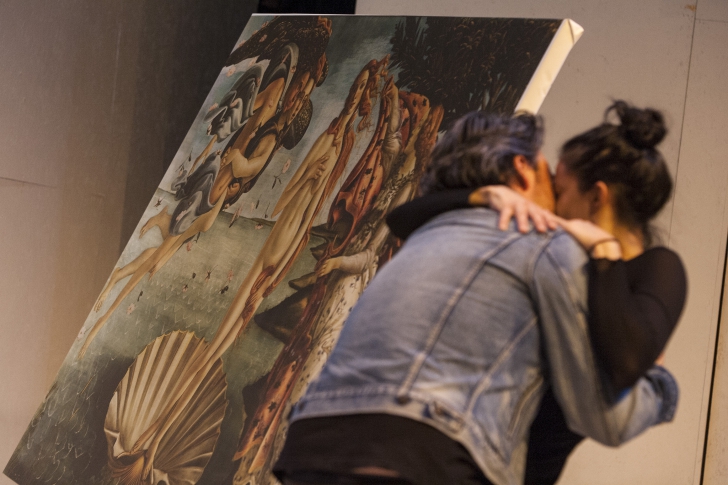
“Sunday in Sodom is Edith, the character of Lot’s wife, who’s been literally silenced through history,” Tannahill continues. “She’s not even named in the bible. She basically disobeys god and her husband, looks back on the destruction of her city and is punished by being turned into a pillar of salt.”
Directed by Matjash Mrozewski and Estelle Shook respectively, the plays present a set of characters wronged by history, then corrected and queered up. Salvatore Antonio, who stars as Botticelli (and then as a soldier in Sunday in Sodom), chose to play his character more as a modern sexual being than as a straight-up queen.
“For me, I’m not really playing him as gay, I’m playing him as queer,” he says. “It’s like the birth of queer, I do what I want, when I want, with whomever I want. He goes on and on about a soulful appreciation of beauty and pleasure. If he could fuck a painting he would. In this play I’m with women and men, I chose not to make my time with Cledicce — the female character — be fake, because I actually do enjoy that, it has its tactical elements, but she’s stunning and powerful and those are all things that turn him on. To me, the closest thing to what we would call him now is a bisexual man. I don’t know what Botticelli would have called himself other than a lover of beauty.”
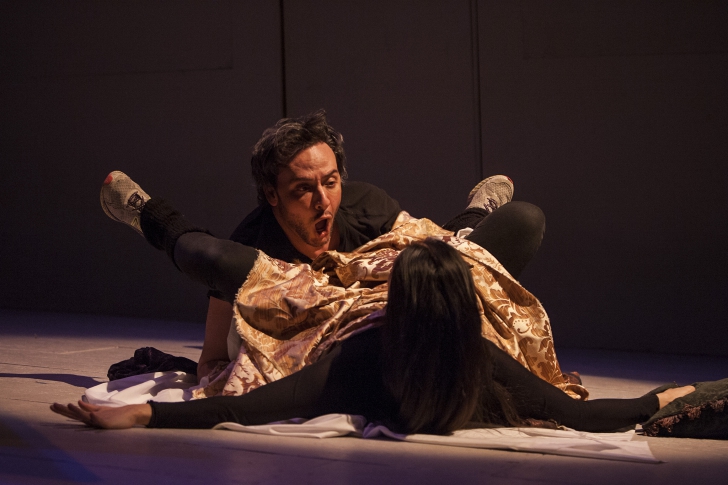
As for Stephen Jackman-Torkoff, who plays both Botticelli’s lover and Isaac — you know, Abraham’s son who was dragged up to the top of a mountain as a sacrifice — both of his characters are straight up gay, gay, gay. “He’s definitely in love Botticelli and I think he’s pretty new on the block, so he doesn’t have too much experience,” Jackman-Torkoff says.
One could think of this double-bill blowout as a historical introduction to being queer. Something on stage for those who are new on the block. A theatre style Tannahill is somewhat of an expert at pulling off.
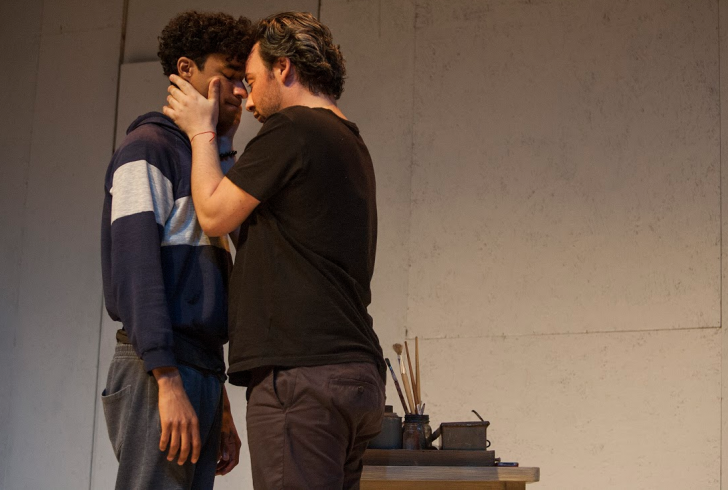
“They’re two bold, unapologetic pieces that are beautifully crafted, written by one of the most exciting young, queer playwrights that this country has ever had,” Antonio says. “This is their voice, it’s being given audience and it’s skillful, soulful writing, he’s tapped into something which is electric right now.
“The young people coming to watch this play will hear and see themselves, represented fairly on stage,” he continues. “[Tannahill] has huge respect for young people, not just this play, but a lot of his plays. I would have loved to, in my late teens and 20s, to have had that stuff being written by someone who is so close to it himself. It is an extravaganza.”
Botticelli in the Fire and Sunday in Sodom
Tuesday, April 26–Sunday, May 15, 2016
Canadian Stage, Berkeley Street Theatre, 26 Berkeley St, Toronto
canadianstage.com
All photos taken during rehearsals by Nick Lachance.
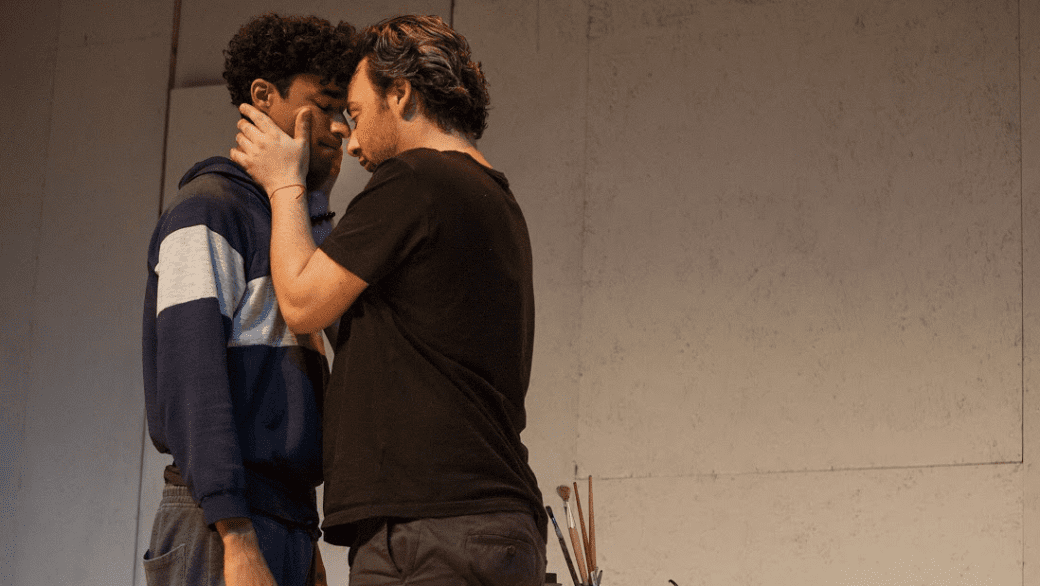

 Why you can trust Xtra
Why you can trust Xtra


